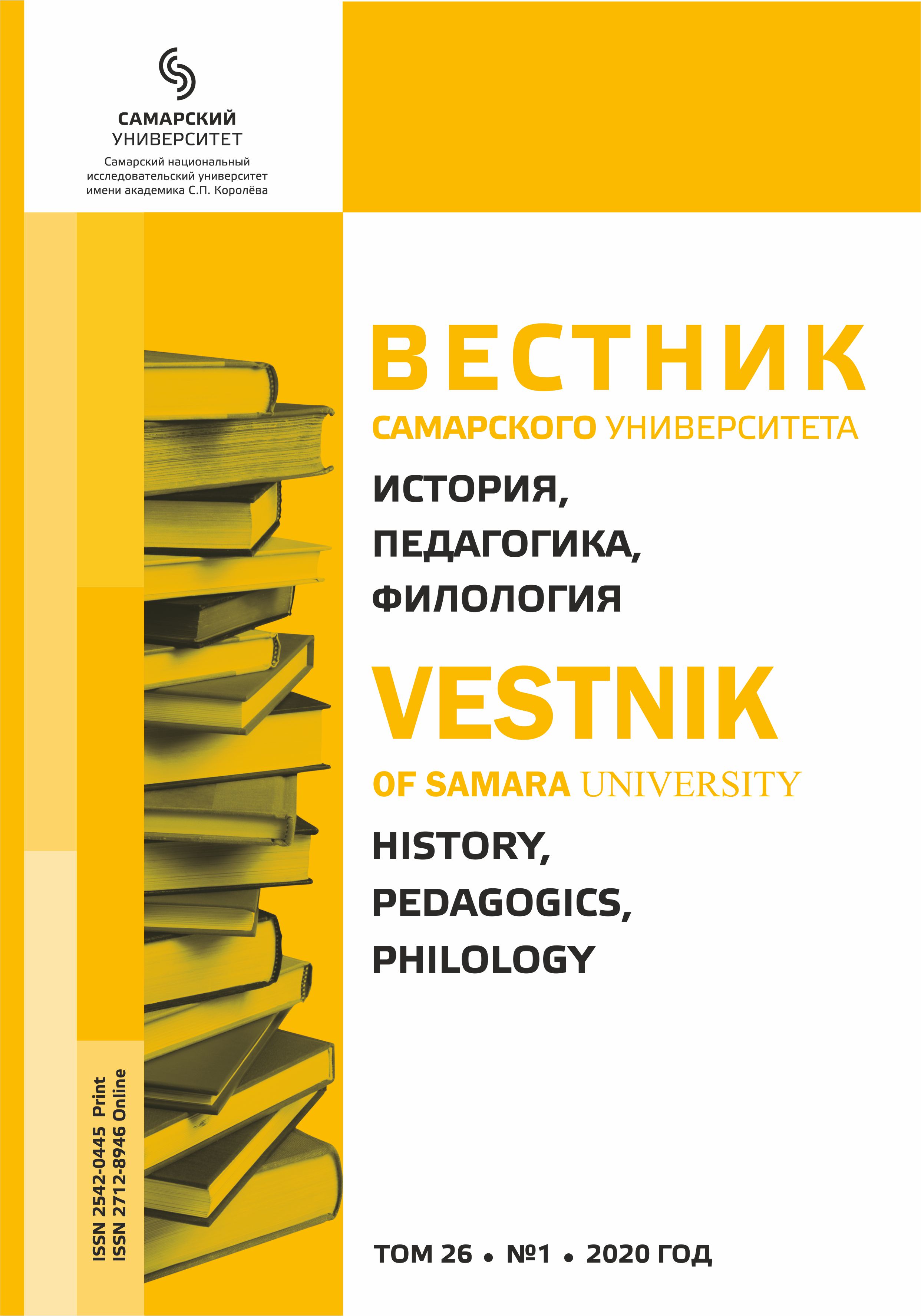Expressive means in Margaret Thatcher’s speech
- Authors: Gadzhieva A.D.1
-
Affiliations:
- Lomonosov Moscow State University
- Issue: Vol 26, No 1 (2020)
- Pages: 141-147
- Section: Articles
- URL: https://journals.ssau.ru/hpp/article/view/7741
- DOI: https://doi.org/10.18287/2542-0445-2020-26-1-141-147
- ID: 7741
Cite item
Full Text
Abstract
Contemporary linguistics and stylistics provide no ambiguous interpretation of the «expressivity» concept and all of its definitions intersect with the concepts of «emotionality», «imagery», «intensity», «expressiveness», etc. Currently, deliberate attention is focused on the study of expressivity issue in both domestic and foreign linguistics, however, despite the rich theoretical material; there are no clear concepts and terms. Many contradictions are found in the very definition of expressivity: a number of scientists associate expressivity with both the functional side of the language and the semantics of words, while others describe it in terms of linguistic stylistics and lexicology. In the context of these problematic issues, the aim of the article was to develop an integrated approach to the conceptual interpretation of «expressivity», «means of expressivity», as well as to provide a clear demarcation between the first of the concepts and the term of «emotionality».
In this article, based on the analysis of literary sources, the following tasks has been implemented: we considered approaches to the interpretation of the «expressivity» concept, after which, during a contextual and stylistic analysis, we identified the key expressive means on the basis of four speeches announced by the famous British politician, Margaret Thatcher, which allowed to identify lexical and syntactic means creating expressiveness in the statements of the mentioned politician. The main research method in this article was a descriptive analysis, as well as a component analysis, which provides for the consideration of connotative interpretation focused on the speech units used by Margaret Thatcher in public.
In the framework of this article, the most memorable speeches of the politician were analyzed in order to understand how she managed to manipulate the audience. In addition, the lexical and syntactic features of Margaret Thatcher’s linguistic image, as one of the most famous politicians, and, no less important, speakers, are revealed. In particular, anaphoras, epiphoras, rhetorical constructions, parentheses, emotionally marked vocabulary, metaphors, comparative figures of speech and elements of citation are highlighted, which allowed the policy-maker to attract the attention of the audience, increase her credibility, discredit opponents, etc.
About the authors
A. D. Gadzhieva
Lomonosov Moscow State University
Author for correspondence.
Email: morenov@ssau.ru
ORCID iD: 0000-0002-9272-0114
postgraduate student, Department of English Linguistics, Philological Faculty
References
- Akhentoolove, Punnett 2012 – Akhentoolove C. and Punnett B. (2012) Using cultural metaphors to understand management in the Caribbean. International Journal of Cross Cultural Management, ed. 12, pp. 269–275. DOI: http://doi.org/10.1177/1470595812440152.
- Hamlin, Jennings 2009 – Hamlin A. and Jennings C. (2009) Expressive Political Behaviour: Foundations, Scope and Implications. British Journal of Political Science, pp. 645–670. DOI: http://doi.org/10.1017/S0007123411000020.
- Hillman 2010 – Hillman A. (2010) Expressive Behavior in Economics and Politics. European Journal of Political Economy, ed. 26, pp. 403–418. DOI: http://doi.org/10.1016/j.ejpoleco.2010.06.004.
- Laband 2009 – Laband D.M., Pandit R., Sophocleus J.S. and Laband A.M. (2009) Patriotism, pigskins, and politics: An empirical examination of expressive behavior and voting. Public Choice, ed. 138, pp. 97–108. DOI: http://doi.org/10.1007/s11127-008-9341-7.
- Bally 2001 – Bally Ch. (2001) French stylistics = Traitè de stilistique Franaise. Moscow: Editorial URSS, 393 p. (In Russ.) Available at: http://b-ok.cc/book/2522187/0b4337.
- Vinogradov 1972 – Vinogradov V.V. (1972) Russian language. Grammatical doctrine of the word. Moscow: Vysshaya shkola, 312 p. (In Russ.) Available at: http://www.slovari.ru/default.aspx?p=5306.
- Galkina-Fedoruk 1958 – Galkina-Fedoruk E.M. (1958) On expressivity and emotionality in the language, in The anthology of linguistic articles. Moscow: Izd-vo MGU, pp. 103–124. (In Russ.)
- Kozhina 1960 – Kozhina M.N. (1960) Vocabulary of the modern Russian language from the expressive-stylistic point of view, in Questions of the modern Russian language teaching in high school. Gorky, pp. 81–88 (In Russ.)
- Rozental 1999 – Rozental D.E. and Telenkova M.A. (1999) Dictionary of the difficulties of the Russian language. Moscow: Airis press, 575 p. (In Russ.) Available at: http://b-ok.cc/book/503276/576849.
- Telia 1991 – Telia V.N. (1991) Human factor in language: Language mechanisms of expressivity. Moscow: Nauka, 214 p. (In Russ.) Available at: http://b-ok.cc/book/3207233/96bac7.
Supplementary files













